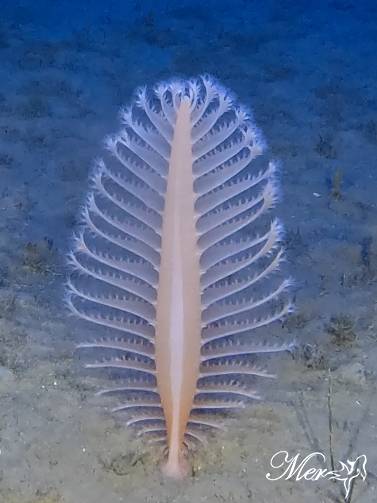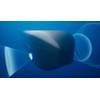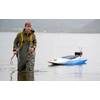Sensitive Mesophotic Ecosystems in Cyprus Threatened by Human Impact
The Marine & Environmental Research (MER) Lab, through the MESOPHOS project, carried out the first exploration of mesophotic ecosystems (50–200 meters) of Akrotiri and Dhekelia in Cyprus, surveying over 32 sites with a remotely operated vehicle (ROV).
The surveys revealed extensive assemblages of sponges, corals, anemones, and other benthic organisms that create three-dimensional habitats and support rich marine life.
More than 200 species were recorded, including several not previously reported in Cyprus, many of them protected and/or threatened.
These mesophotic habitats act as biodiversity refuges and contribute indirectly to sustainable fisheries, strengthening the resilience of marine resources.
Despite the depth, the impact of humans was evident. The team documented marine litter and lost fishing gear (ghost gear), marks from bottom-towed gear/trawling causing disturbance to sensitive habitats, the presence of alien species, and coral necrosis likely linked to ocean warming. These habitats develop extremely slowly and have limited capacity to recover once disturbed.
There is an urgent need to adopt targeted protection measures such as spatial restrictions on damaging activities and active management/removal of litter and lost gear, together with long-term, systematic scientific monitoring.
The program was implemented by the Marine & Environmental Research (MER) Lab and funded by the Government of the United Kingdom through Darwin Plus (DPL00075).











 December 2025
December 2025



